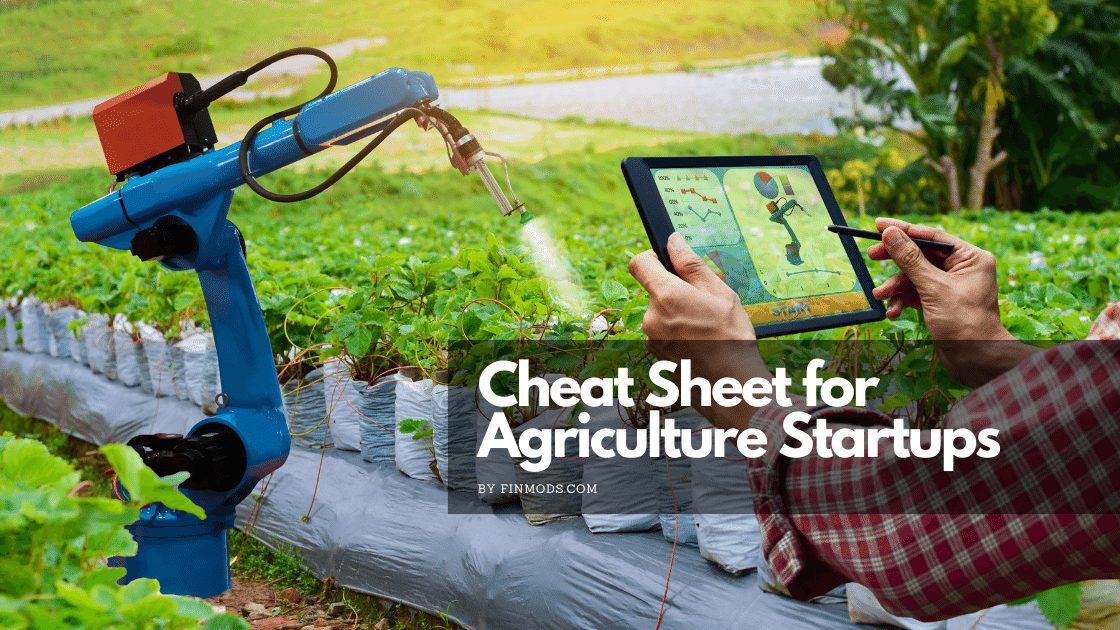- 1. What is an agriculture startup?
- 2. What startup ideas are there for agriculture?
- 3. Who are the customers of agriculture startups?
- 4. What are the common problems of customers of agriculture startups?
- 5. Are there venture capital firms for agriculture startups?
- 6. What are the popular business models for agriculture startups?
- 7. What are the benefits of agriculture startups?
- 8. What are the strengths of agriculture startups?
- 9. What are the weaknesses of agriculture startups?
- 10. What are the opportunities for agriculture startups?
- 11. What are the risks of agriculture startups?
- 12. How can you grow an agriculture startup?
- 13. What are the challenges of agriculture startups?
- 14. How can AI influence agriculture startups?
1. What is an agriculture startup?
An agriculture startup is a company that develops and sells products or services to support the agriculture industry. Agriculture startups typically have a deep understanding of the agriculture industry and its needs, and use this knowledge to develop innovative solutions to address challenges faced by farmers and other agricultural businesses. Many agriculture startups are focused on developing new technologies to improve crop yield, decrease water usage, or reduce the use of pesticides and other chemicals.
2. What startup ideas are there for agriculture?
- A smart irrigation system that utilizes weather data and plant sensors to optimize watering schedules for crops.
- An AI-powered tool for identifying pests and diseases in crops and recommending treatment options.
- A software platform that helps farmers in running their businesses.
- A business that creates software to help farmers more accurately predict weather patterns and forecast crop yields.
- A business that creates robots to help with farm tasks, such as picking fruits and vegetables.
- An agricultural robotics company that manufactures and sells robots to assist with crop cultivation, planting, and harvesting.
- A robotic milking machine for dairy farms that automates the milking process.
- A software company that develops apps and robotic solutions.
- Agricultural robots that can identify weeds and pests and dispense herbicides and pesticides accordingly.
- Agricultural robots that can plant, water, and harvest crops.
- Agricultural robots that can milk cows and collect eggs from chickens.
- A software application that helps farmers to map their crops and track data related to yield, soil quality, and weather patterns.
- A software program that assists farmers in real-time with irrigation, planting, and crop maintenance.
- A software application that helps farmers to map their crops and track the data to optimize growth and yield.
- A software application that helps farmers to track weather patterns and forecast weather-related risks.
3. Who are the customers of agriculture startups?
The customers of agriculture startups are typically farmers or agricultural businesses. These customers use the products and services offered by the startup to improve their operations, which can include anything from increasing crop yields to reducing costs. In some cases, the customer base may also include consumers who are interested in purchasing food that has been produced using sustainable methods.
4. What are the common problems of customers of agriculture startups?
There are a few common problems that customers of agriculture startups face. The first is a lack of knowledge about the product or service offered by the startup. This can lead to customer confusion and frustration. Second, customers may not have the tools or resources to use the product or service effectively. This can lead to wasted time and money. Finally, customers may encounter problems with the quality of the product or service, which can lead to dissatisfaction and even cancellation of their subscription.
5. Are there venture capital firms for agriculture startups?
This selected list contains 80 venture capital firms funding startups in agriculture in the seed stage and/or early stage.
What is a seed stage startup?
A seed stage startup is a company in the very early stages of development – typically pre-revenue. The company may have a product or service, but it is not yet commercially viable. The term “seed stage” refers to the early stages of a company’s development when it tries to find its footing and grow its business. Seed-stage startups typically have a small team of employees and a limited budget.
What is an early-stage startup?
An early-stage startup usually has developed a prototype that generates some revenue (post-revenue), but it might not be profitable yet.
6. What are the popular business models for agriculture startups?
There are a few popular business models for agriculture startups. The first is a subscription-based model, where customers pay a monthly or annual fee to access the company’s products or services. The second is a pay-per-use model, where customers only pay for the products or services they use. The third is a freemium model, where the basic product or service is free, but customers can pay for additional features or services.
7. What are the benefits of agriculture startups?
They can help to diversify the agricultural sector, create new jobs and businesses, and provide new products and services. Agriculture startups can also help to increase productivity and efficiency in the sector, and they can bring new technologies and innovations to the market.
8. What are the strengths of agriculture startups?
1) They are innovative, coming up with new ways to increase yields, reduce costs, or both.
2) They are often founded by people who are passionate about food and agriculture and who have a deep understanding of the sector.
3) They often have access to cutting-edge technology, giving them a significant competitive advantage.
9. What are the weaknesses of agriculture startups?
One big issue is that these companies tend to have a lot of debt, and they constantly need more money to keep the business going. Another issue is that the market is very cyclical, so a downturn in the economy hits these startups very hard. And lastly, there’s a lot of regulation in the agriculture industry, so it can be difficult to navigate all of the rules and regulations.
10. What are the opportunities for agriculture startups?
One opportunity is to develop new technology to increase yields and reduce costs. Another opportunity is to develop new food production methods, such as vertical farming. There is also an opportunity to develop new ways to distribute food, such as community-supported agriculture or home delivery. Finally, there is an opportunity to develop new services related to agriculture, such as education or consulting.
11. What are the risks of agriculture startups?
The first is that the sector is highly competitive, and many startups fail to gain traction. Second, the agricultural sector is subject to volatile weather conditions, which can impact crop yields and profitability. Third, startups may struggle to access capital, as investors often hesitate to invest in early-stage companies in this sector. Fourth, the regulatory environment surrounding agriculture can be complex, and startups may have difficulty navigating it.
12. How can you grow an agriculture startup?
One way is to focus on the product and perfect it. This means that the startup creates a product that is unique and solves a problem that other products in the market don’t. Another way to grow a startup is to create a strong brand. This means that the startup creates an image and reputation for itself that makes it stand out in the market.
13. What are the challenges of agriculture startups?
One challenge is access to capital. Startups often have difficulty securing funding from traditional sources, such as banks or venture capitalists. Another challenge is finding and retaining talent. Agricultural businesses require a unique skill set, and it can be difficult to find employees with the necessary experience and training. Additionally, startups face the same challenges as any other business, such as competition, regulation, and market fluctuations.
14. How can AI influence agriculture startups?
There are many ways in which artificial intelligence (AI) can influence agriculture startups. For example, AI can help with crop yield predictions, irrigation plans, and logistics. Additionally, AI can be used to develop new products and services that cater to the needs of the agricultural industry. In general, AI can help make agricultural businesses more efficient and effective.
Peter is a solopreneur in Salzburg, Austria, a husband, and a family father. He runs a little publishing company, and blogs about starting and running online businesses. In his spare time, he enjoys hiking with friends and reading the Bible, and sometimes he takes a trip in his roaring old black 2001 Jaguar XJ8.





